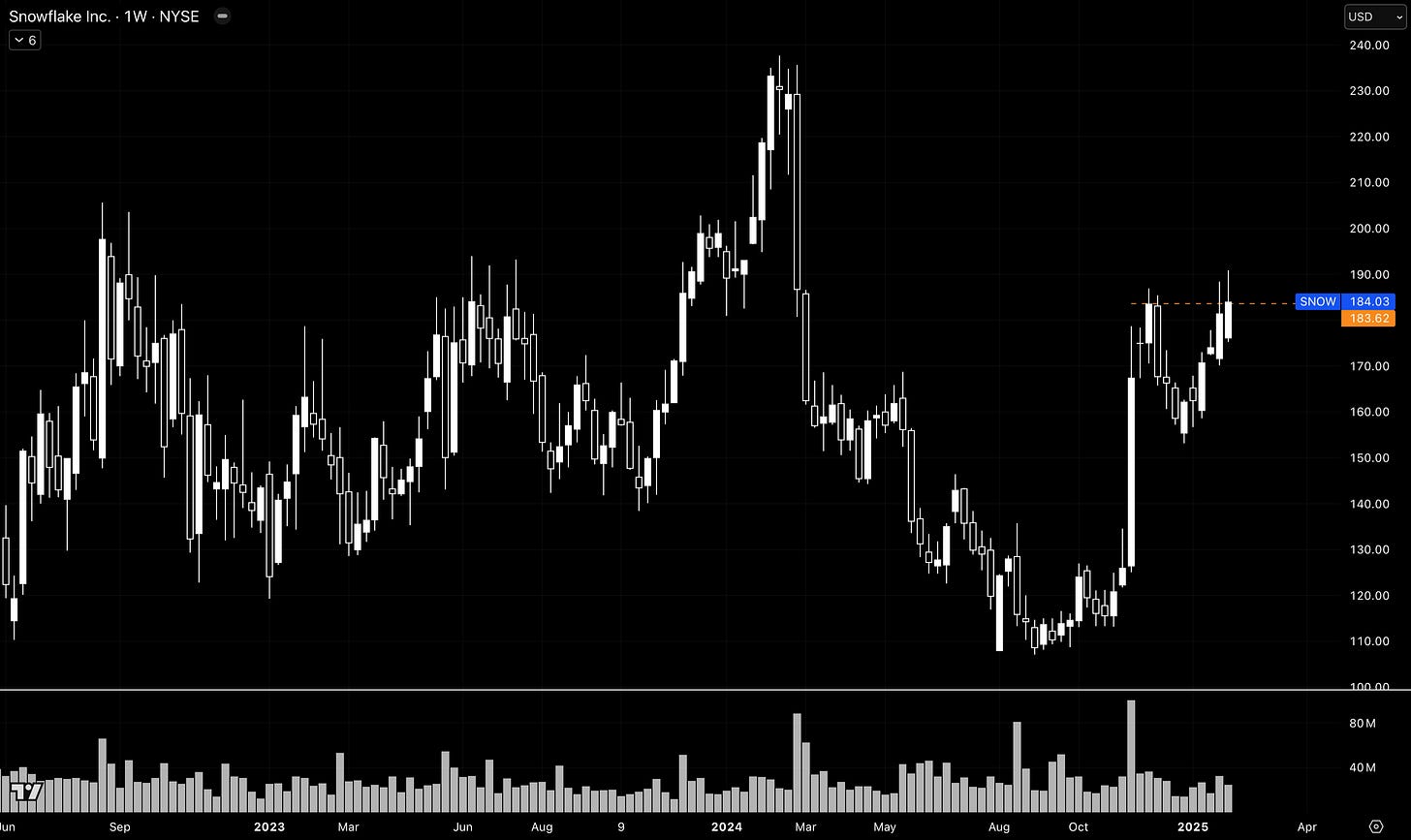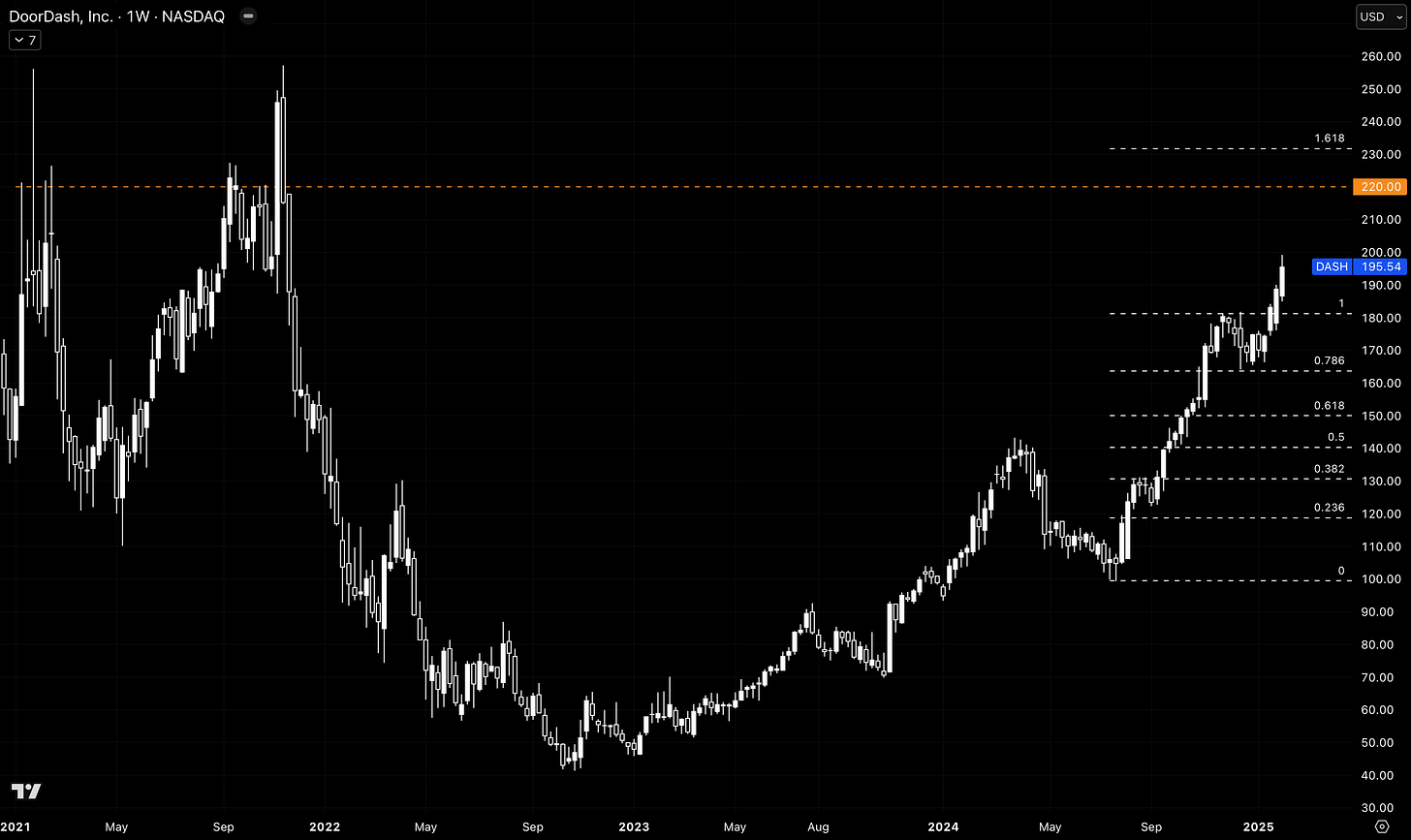Top Trade Ideas - February 10th
Tariff this, tariff that.
Tariffs were all the talk last week. The end result, however, was the dollar down and risk assets being bought on the Monday dip.
Tech had some earnings upset. Alphabet and AMD disappointed investors in their earnings results on Tuesday, both opened lower. Amazon also dropped in after hours trading on Thursday following their earnings call after projecting profit that fell short of estimates. However, the company continues to ramp up spending to support artificial-intelligence services.
Elsewhere in tech, Meta is up 14 days in a row—the best stretch in 10+ years—on the back of strong earnings and positioning. The move higher is representative of internet stocks as a whole over the last two weeks…
Hedge funds dumped U.S. equities for a fifth straight week, as the AI threat and the risk of steep levies. Data show that the funds ramped up short sales in single stocks and long sales in macro products.
On Friday, mixed jobs figures highlighted a moderating yet healthy labor market and a wage jump. Bonds fell on the back of the print as rate cuts for 2025 were eased.
The Week Ahead
U.S. inflation data on Wednesday will be a key signal for when U.S. interest rates are next likely to be cut, if at all. Signs of persistent inflation would add to speculation that rates are likely to stay on hold over the coming months. Fed Chair Powell’s monetary-policy testimony on Tuesday to the Senate Banking Committee, and on Wednesday to the House Financial Services Committee, will also be watched closely for clues on the rate outlook.
With recent job data pointing to a robust labor market, the Fed will likely remain on the sidelines for now, with a prolonged pause in the easing cycle looking likely. Money markets are pricing in a likely–but not certain–rate cut in July.
The focus will also be on any further news regarding President Trump’s tariff policies on the European Union and possibly other countries.
U.S. retail sales and industrial production data for January could give important information about how robust the economy is. Producer prices data for January on Thursday will indicate pipeline inflationary pressures, while weekly jobless claims are due Thursday.
Additionally, the Trump administration could outline proposals for ending Russia’s war against Ukraine.
The week ahead is quiet for the eurozone, with data likely to give further evidence of a weak economy and likely further interest-rate cuts ahead. Eurozone industrial production data for December are due Thursday, followed by fourth-quarter GDP data on Friday. French unemployment figures are scheduled for Tuesday and final German inflation for January will be released Thursday.
U.K. GDP data for December and the fourth quarter on Thursday will be watched closely given the recent focus on the U.K.’s stuttering economy. Signs of economic weakness could add to prospects of further interest-rate cuts by the BoE, although concerns about inflation remain.
In a recent decision, the BoE cut interest rates by 25bps, with two out of nine policymakers favoring a larger 50bps reduction. U.K. money markets currently price in a 20% chance of a follow-up rate cut in March.
Equities
Snowflake (NYSE: SNOW) retested resistance for a break higher last week. Friday’s market sell before the close saw the stock end the week retesting the 184 level. SNOW’s strength should see a good move from here if the market can weather the recent storm of uncertainties.
TRADE IDEA - SNOW BREAKOUT
Entry: 184
Stop Loss: 174
Take Profit: 200
DoorDash (NASDAQ: DASH) is another internet stock that has shown similar strength in recent weeks to Meta. Taking a wider view, this strength is part of a much bigger recovery from Pandemic-boom highs.
We’re on watch for this name to continue to show strength over the coming months and push towards 220+. Earnings are Monday post-market. We’re not in the habit of earnings gambles on new positions, so we will see what guidance the company gives for the coming year and revisit a possible entry.





